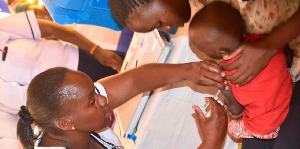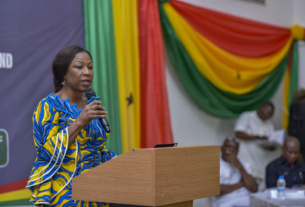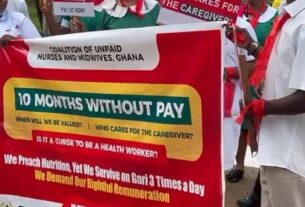Read also:
- NPP Completes Voter Register Validation Ahead of 2026 Presidential Primaries
- Democracy Cup Winners to Face Sunderland in International Friendly
- GCB Bank Supports Maternal Health Initiative in Ghana
- Ghana Boosts Border Security Amidst Togo Instability
- Ghana’s Inflation Drops to 8% in October 2025: A Sign of Economic Stability
El Samuels: MBN360
Ghana’s long-standing success in child immunisation is entering a new phase as the country prepares to independently fund and manage its national vaccination programme by 2027. This marks a critical transition from decades of donor-supported immunisation to full national ownership, a shift that experts say will test the country’s resilience and commitment to public health.
Since the launch of the Expanded Programme on Immunisation (EPI) in 1978, Ghana has made remarkable progress in protecting children from vaccine-preventable diseases. The country’s immunisation schedule includes 13 vaccines for children under five years, covering diseases such as tuberculosis, diphtheria, tetanus, pertussis, hepatitis B, rotavirus, yellow fever, and malaria.
The government has established the National Vaccine Institute (NVI) to coordinate national vaccine production, research, and supply management. The institute will play a central role in maintaining vaccine security, promoting local vaccine manufacturing, and fostering partnerships with the private sector and academia.
Public health experts say the transition presents both opportunities and challenges. The Ministry of Health, Ghana Health Service, and the National Vaccine Institute are working closely with international partners to build the country’s capacity in vaccine procurement, cold chain logistics, and health workforce training.
The Acting CEO of the Ghana Vaccine Institute, Dr. Sodzi Sodzi-Tettey, noted that Ghana’s move toward vaccine self-sufficiency is a positive step for national sovereignty in health. The Executive Secretary of AMMREN, Dr. Charity Binka, stressed the need to increase public awareness on the importance of vaccines in addressing public health concerns.




